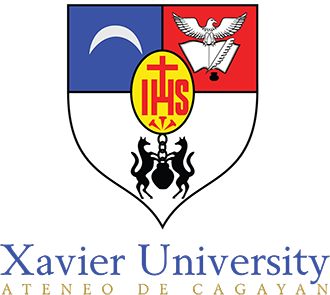
Vol 2. 2016


English Department
Editorial Board
Ma Elena Paulma, PhD
CNF and Fiction Editor
Ferdinand Cantular
Poetry Editor
Ann Catherine Acenas
Managing Editor
Contributors
CJ Sections
» Editorial
» Nonfiction
» Poetry
» Fiction
» Criticism
» Sari sari
On Discussing the Classics with the Poet of Muddas
by Christine Gumalal
Fast, always moving, and never ending, these are the tasks that push me every day. Demanding, without a pause, without looking back, until I get to the point of forgetting. In the morning I wake up, turn the power button on, and leave my room. At the end of the day I turn the power button off, and go to sleep. And standing in that room is a forgotten bookshelf, antique in its posture as it holds the untouched literatures, some once opened, some half-read, and most have resigned themselves over the years of dust to the dunes of memory.
Until one day I decided to clean up.
A visiting friend was the blue moon that changed the tide of my usual routine. Transformed into a determined cleaning lady, I laboured with my tools: a small basin, filled with a solution of chlorine and detergent powder, and a rug that dived forth and back, each time plunging in gray and coming out clean, like a newly baptized person. I started from up the walls then planned to conclude by mopping the floor, following the advice of my grade school TLE teacher. And just after sweating it with the jalousie windows, with the occasional surprise of finding a fossilized lizard stuck in the corners, I found myself facing the bookshelf.
My scalp, thickened with sweat and dust, itched with the idea of rearranging my personal library. Restocking and reshuffling the arrangement of the various books that I have acquired throughout time. From the day I found Puzo’sThe Godfather lying naked under an old broken cabinet of my grandmother’s house, to that specific semester that I was assigned a dozen of classics to read for The Novel course, until the present’s desperate Booksale cravings, I was suddenly faced with a sense of incompetence. Almost two hundred and only a quarter read. I dropped the rag on the floor, pushed the basin away, and got Books of English Poetry from the shelf. I sat next to the basin, using a dirty shirt as my mat, and started reading.
There is always a memory, whenever I hold a book, which brings me back to my college days. A memory that puts me in a seat of a Super 5 bus and journeys the streets of Iligan City, passing all its secret drinking stations, and finally stopping in an old apartment that houses five lodgers, where I see my younger self, an AB English major, still filled with the illusion of life outside the campus, still a dreamer, and still exudes the vigour for reading the classics.
I itch for that past self. Never mind the innocence and the lack of experience, I wouldn’t mind trading what I have now for her time. The challenge remains: what can I ever do to keep the moment still? These hands, these eyes, my entire organic vessel, everything is subscribed to the unstoppable decay. Just like the second that slowly covers me tick by tick, like a tiny dust speck that makes a desert and leaves the earth with nothing but heaps of ashes.
I wish to have a year off. To stay in the middle of nowhere with only the basics. And all of these 184 books. Is it a fault to wish to be cocooned in literature forever? If anyone out there feels exactly the same, then you’re welcome to join me. Let us devour the classics. Let these timeless masterpieces crack open, penetrate, and twist our minds, our very core of being. Let these literary treasures change us, for better or worse. Let us evolve, let us feel, and let us become human again.
Carpe Diem, the omnipresent theme in almost every story, movie, pop song, and poetry. I still strive to understand that Latin phrase.
I remember a recent conversation with a poet. It was a beautiful August afternoon, and we were having late lunch in Delecta, a Filipino restaurant that had grown its franchise in Iligan City. With a huge serving of Kare-kare at the center of the table, Tony sat before me. Outside the glass walls, the sun kept changing hues and it made us look like we were in a Woody Allen film.
We talked for almost three hours. Of how he almost sold his house in Andrada, the one that I, along with the Dork Squad (a group of AB English majors), frequented back in college. We spent our weekends devouring foreign and classic films in his living room. In the adjacent kitchen, we were always welcomed with a basket of Pajo and Florida mangoes and his signature biko and sikwati.
His house is one of the few places one can call home. It is a place where one feels invincible. And Tony had just realized this the night before selling his property. “I cried. There was something overwhelming about the thought of leaving this house.” He admitted that he has always been moving from one place to another.
The day he left Muddas marked the start of his odyssey. Carrying his personal library in a suitcase, he reminisced the many apartments and boarding houses he had bidden farewell to. In all these departures, he succeeded in containing his tears into stones that settled anxiously in his stomach.
But on that particular evening, while contemplating on selling his house and calculating his next destination, the poet was suddenly caught by the crumbling pile of stones he had held for a long time. He cried. It was only then he realized he is a sentimental man.
He is also a gardener. He has grown varieties of mango trees and an Evergreen avocado along with many ornament plants in his garden. But since he already promised his land, he had to sell a portion of it to his next door neighbour. He bid farewell to the trees he had grown. More than half of his garden was transformed into a garage, housing his neighbour’s two cars.
The world is too much with us. I felt a twitch in the corners of my eyes. The walls of stone in my chest trembled and cracked. When do we start to realize that we are becoming less human? How does one choose to cut the tastiest avocado tree in Iligan?
Our conversation voyaged us through space and time. The mid-60s poet was then transformed into his real being, an impish child, whose tales of boundless sea and the island Muddas never actually left him. As if to calm my thoughts, he brought me to the beach with him and introduced me to his Badjao playmates.
I was a spectator. I then followed the poet to the university in Dumaguete. He showed me his library desk, where he unceasingly devour the words of Faulkner, Chekov, Dostoyevsky, and the books no one dared to open.
When he was still a student, in a class filled with the sons and daughters of the city’s doctors, politicians, and businessmen, no one recognized the young man who got the highest grade in class. No one even knew where Muddas was. It was the classics that made him feel superior. He felt confident, immersed in the glory of all these great writers, unaware that he was to become one of them.
“Read the classics.” He told me. “I wish I had the same energy again to finish a Russian novel.” We sat silent for a moment and drowned ourselves in the flavour of mixed fruit coolers. I gulped and held my breath, held the wall that was ready to fall in my stomach. How could I tell him I left Crime and Punishment halfway? What could I do to keep my mentor in that restaurant forever?
Transients, we are always moving.
In the end my restlessness was abated by his stare. Always with a calming effect, a boundless sea was reflected in his eyes. His eyes, that blue infinity, were a bit muddled but calm.
In the end we had to leave and pay the bills. And once again I felt the senselessness of things. How much can you possibly charge for a wonderful afternoon? The child had to become an old man again. He had to hurry to collect the umbrellas he ordered to be repaired. He gave me a tight hug. I wondered how long I could hold the pile of stones that had been building pressure in my chest. “I’ll see you again.” And Tony ran the busy street of Pala-o, like a child, to get his umbrellas.
Amidst all these ordinariness, an extraordinary poet illuminates the corners of my forgotten bookshelf.
And everything becomes clear.
sari sari, Carayan Vol 1. No.1 Dec 2015
© 2016 English Department, Xavier University - Ateneo de Cagayan
ISSN 2467-5679
All poems, stories and other contributions copyright to their respective authors
